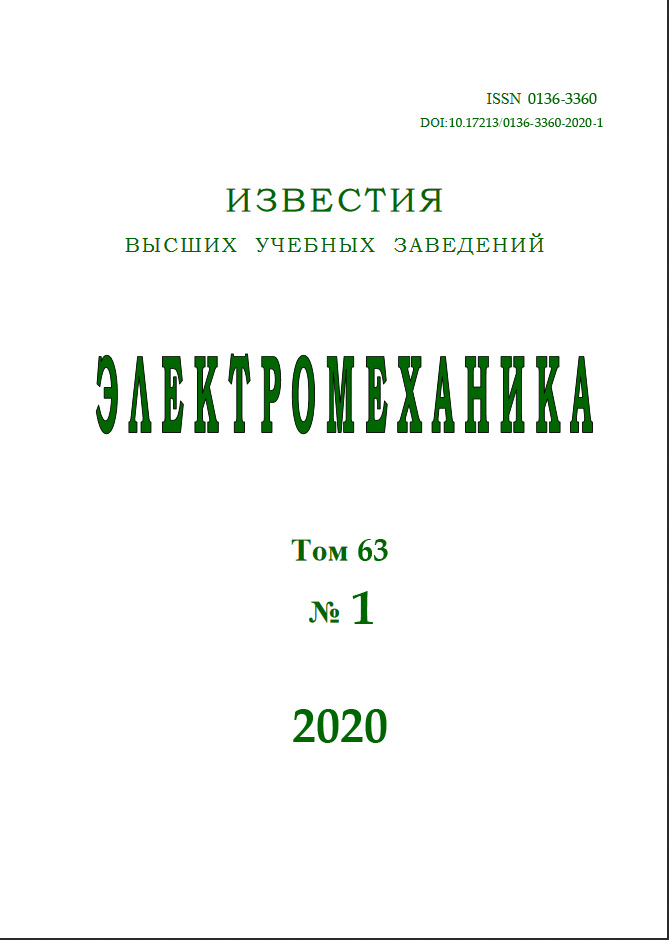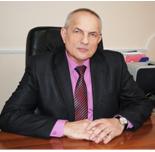Hybrid Power Quality Conditioner for Three-Phase Four-Wire Power Systems
DOI:
https://doi.org/10.17213/0136-3360-2020-1-55-61Keywords:
power quality, three-phase four wire power systems, hybrid power filtersAbstract
In this paper hybrid power quality conditioner for three-phase four wire power systems is considered. The conditioner is composed of single modules installed at various locations of distribution power system. Individual modules ensure compensation of zero-sequence and negative- sequence voltage and current components. This open configuration of power quality conditioner composed of independent modules allows compensation voltage and current distortion caused by nonlinear and unbalanced single-phase loads. The performance of the proposed conditioner is validated through computer simulation using MatLab software. Simulation results show that the proposed conditioner achieves PQ normalizationReferences
Шидловский А.К. , Жаркин А.Ф. Высшие гармоники в низковольтных электрических сетях. Киев:Наукова думка, 2005. 210 с.
Key T., Lai J.-S. Analysis of harmonic mitigation methods for building wiring systems // IEEE Transactions on Power Systems. 1998. Vol. 13, №. 3, pp. 890 - 897. doi:10.1109/59.708772
Pomilio J., Deckmann S. Characterization and compensation of harmonics and reactive power of residential and commercial loads // IEEE Transactions on Power Delivery. 2007. Vol. 22, №. 2, pp.1049-1055. doi: 10.1109/TPWRD. 2007.893179
Hafezi H., D’ Antona G., Dede A., Della Giustina D., Faranda R., Massa G. Power quality conditioningin LV distribution networks: results by field demonstration// IEEE Transactions on Smart Grid. 2017. Vol. 8, №. 1,pp. 418 - 427. doi: 10.1109/TSG.2016.2578464
Jou H.- L., Wu J.- C., Wu K.- D., Chiang W.-J. , Chen Y.-H. Analysis of zig-zag transformer applying in the three-phase four-wire distribution power system // IEEE Transactions on Power Delivery. 2005. Vol. 20, №. 2,pp. 1168 - 1173. doi: 10.1109/TPWRD.2005.844281
Singh B., Jayaprakash P., Somayajulu T., Kothari D. Reduced rating VSC with zig-zag transformer for current compensation in a three-phase four-wire distribution system // IEEE Transactions on Power Delivery. 2009. Vol. 24, №.1, pp. 249-259. doi: 10.1109/TPWRD.2008.2005398
Wu J.-C., Jou H.-L., Hsiao H.-H., Xiao S. -T. A new hybrid power conditioner for suppressing harmonics and neutral-line current in three-phase four-wire distribution power systems // IEEE Transactions on Power Delivery. 2014. Vol. 29, №. 4, pp. 1525 - 1532. doi: 10.1109/TPWRD.2014.2322615
Fujita H , Akagi H. The unified power quality conditioner: The integration of series- and shunt-active filters // IEEE Transactions on Power Electronics. 1998. Vol. 13, №. 2, pp. 315 - 322. doi: 10.1109/63.662847
Khadkikar V .Enhancing power quality using UPQC: a comprehensive overview // IEEE Transactions on Power Electronics. 2012. Vol. 27, №. 5, pp. 2284 - 2297. doi:10.1109/TPEL.2011.2172001
Довгун В. П., Чернышов М. О., Малошенок О. Е. Гибридные силовые фильтры для трехфазных четырехпроводных сетей // Изв. вузов. Проблемы энергетики. 2016. № 1-2. С. 11 - 19.
Uyyuru K., Mishra M., Ghosh A. An optimization-based algorithm for shunt active filter under distorted supply voltages // IEEE Transactions on Power Electronics. 2009. Vol. 24, №. 5, pp. 1223 - 1232. doi: 10.1109/TPEL.2008.2011908







